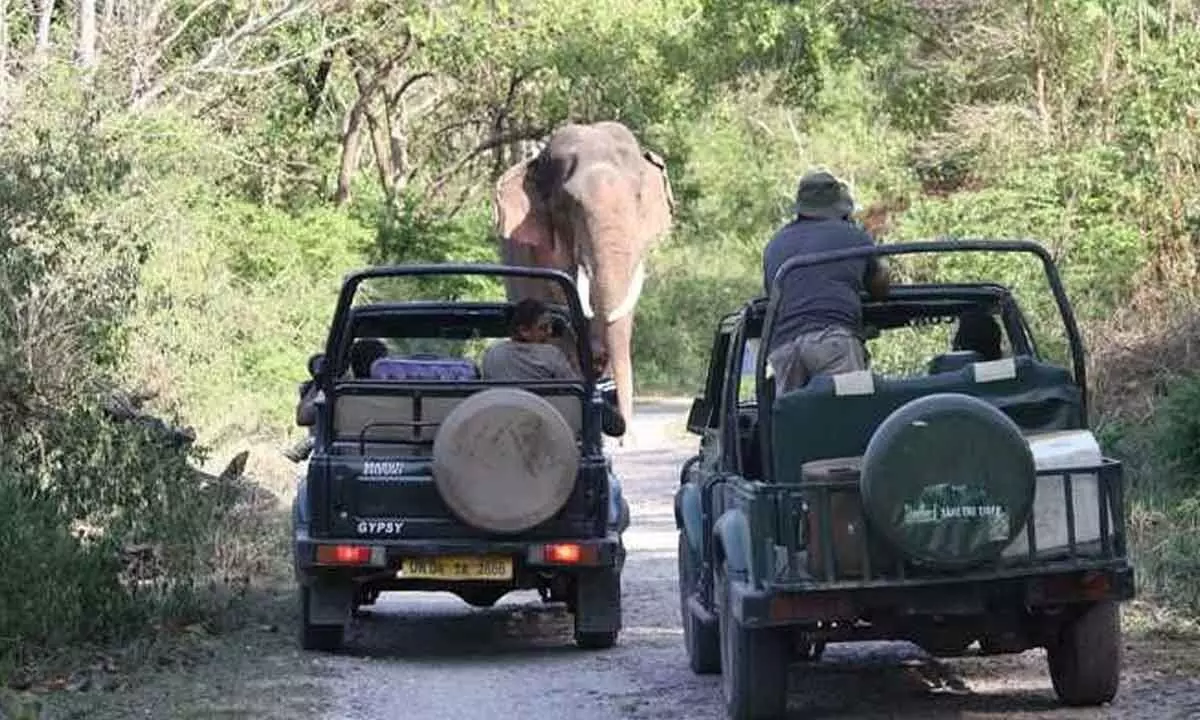New Delhi: SC panel to assess ‘spoiled’ Corbett Tiger Reserve

The committee, to be formed by the Ministry of Forest, Environment and Climate Change, will assess the environmental damage caused to the reserve and quantify the cost for restoration.
New Delhi : Observing that the presence of a tiger in a forest is an indicator of the well-being of the ecosystem, the Supreme Court has ordered setting up of a committee to suggest measures for addressing the damage caused by illegal construction and felling of trees inside the Corbett Tiger Reserve.
The top court said the committee, to be formed by the Ministry of Forest, Environment and Climate Change, will assess the environmental damage caused to the reserve and quantify the cost for restoration.
A three-judge Bench of the Supreme Court comprising Justices BR Gavai, Prashant Kumar Mishra and Sandeep Mehta said the committee shall consider the question as to whether tiger safaris can be permitted in the buffer or fringe area. If such safaris can be permitted, what should be the guidelines for it? the court said. The committee will recommend measures for restoration of the reserve to the state in which it was before the damage was done, it said.
“Identify the persons/officials responsible for such damage. Needless to state that the State shall recover the cost so quantified from the persons/delinquent officers found responsible for the same.
The cost so recovered shall be exclusively used for the purpose of restoration of the damage caused to the environment,” the bench said. The apex court said the committee will consist of a representative each from the National Tiger Conservation Authority, the Wildlife Institute of India, Central Empowered Committee and an officer of the environment ministry not below the rank of joint secretary as its member secretary. Highlighting the importance of tigers in the ecosystem, the top court quoted from the epic ‘Mahabharata’ to say,”The tiger perishes without the forest and the forest perishes without its tigers.
Therefore, the tiger should stand guard over the forest and the forest should protect all its tigers.” The SC said unless steps are taken for the protection of tigers, the ecosystem revolving around them cannot be protected. It also directed that the committee would recommend the type of activities that should be permitted and prohibited in the buffer zone and fringe areas of the reserve. “While doing so, if tourism is to be promoted, it has to be eco-tourism,” it said.














